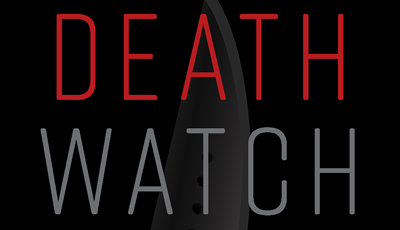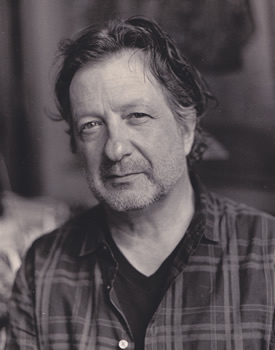

Contemporary Thrillers Death Watch by Stona Fitch
All watches tell time. Only DEATH WATCH tells you if your time’s up.
Coe Vessel, son of a legendary adman, lands the much-anticipated ad campaign of artist-provocateur Watanabe’s latest creation, a mysterious watch called Cassius Seven. The enigmatic Watanabe claims the watch can kill its wearer. Convinced it’s a high-art hoax, Coe and his team of renegade creatives work furiously to land the campaign and persuade the world that the watch (rebranded as Death Watch) is the must-have accessory for end-time capitalism.
Thanks to the team’s inventive launch, Death Watch finds eager buyers among the brazenly cocky, thoroughly disillusioned, and silently suicidal. Death Watch soon becomes a cultural phenomenon, harbinger of a new nihilism, and a target for moral outrage. Exactly what Watanabe envisioned. But his hoax turns horrific when the watches start going off, killing their wearers. Appalled, Coe and his team reverse course and work feverishly to alert would-be customers. But can they stop the juggernaut they set in motion?
TheBigThrill spent some time with author Stona Fitch to learn more about his latest thriller, DEATH WATCH:
Can you pinpoint a moment or incident that sparked the idea for this book?
I was working with a shifty “entrepreneur” to restart a watch company, a project that taught me about the complications that make watches unique. Some complications are simple, like showing the date. Others are more complex, like showing the lunar phase. One day, I realized that the ultimate complication would be a watch that could kill you. This absurd notion took hold and led me to write DEATH WATCH, which is about a deadly watch, but also about the heightened sense of mortality that we all felt during the pandemic. The watch project imploded and left me with a stack of bills—but I got a new novel out of it.
Were there any particular books, movies, or songs that were knocking around in your head while you were writing this one?
The plot of DEATH WATCH revolves around an advertising agency, so I often thought of Mad Men when writing it. Even though the book takes place now, there’s still a lot of bad behavior and quirky characters in the ad world. Also, Clancy Martin’s first novel, How to Sell, was definitely an influence.
When you first created your protagonist for this book, did you see an empty space in crime lit that you wanted to fill? What can you share about the inspiration for that character?
If I knew how to come up with characters who filled an empty space in crime lit, I’d have sold a lot more books. That said, I wanted my main character, Coe Vessel, to be both dark and light. Dark because through most of the book, he’s facing potential death at any moment. But light because he sees the absurdity in every situation he stumbles into. Protagonists in crime novels can seem so bleak that they become two-dimensional. And though Coe definitely has a world-weariness, he keeps his sense of humor—a balance that I think readers will appreciate.
A novel is such a major undertaking; there’s the writing of it, of course, then you’re spending months and months revising, polishing, and then promoting it. How did you know this was the book you wanted to spend the next couple of years on?
DEATH WATCH grew organically from a lot of elements, from detailed (a conversation I overheard at a bar in New Orleans) to conceptual (a watch that can kill). No matter where they came from, ultimately, all of the elements of any novel—plot, characters, dialogue, pacing—have to work together. I loved working on DEATH WATCH and seeing the pieces click into place, often in surprising ways. Those unexpected interconnections transformed writing from a chore to a journey. After all, writers never know what’s next, and that sense of discovery leads us on, sentence after sentence, page after page. At least on a good day.
In addition to a great read, what do you hope readers will take away from this story?
I wrote most of DEATH WATCH during the pandemic, which put a big dent in our communal delusions about never dying, staying forever young, and always moving up and up. I want DEATH WATCH to entertain readers, of course, but also to remind them to savor every moment. I think the ultimate message of DEATH WATCH isn’t about fearing death, but actually experiencing life. It’s also a cautionary tale—don’t buy a watch (or anything else) that might kill you.
Stona Fitch is the founder of Concord Free Press, a non-profit publisher that has been called a grand experiment in subversive altruism. His seven novels, which include Give + Take and Senseless, have been praised by critics and readers, published widely throughout the world, and produced as feature films. He lives with his family in Concord, Massachusetts.
To learn more about the author and his work, please visit his website.
- LAST GIRL MISSING with K.L. Murphy - July 25, 2024
- CHILD OF DUST with Yigal Zur - July 25, 2024
- THE RAVENWOOD CONSPIRACY with Michael Siverling - July 19, 2024


